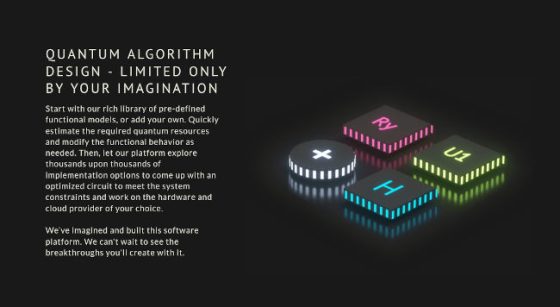The Israeli start-up Classiq, which has developed a platform for designing and optimizing quantum circuits, has just raised $33 million from several investors, including HPE and Samsung funds. The company is planning to open offices worldwide and to hire new staff.
Investments in quantum computing continue, a strategic market in which IT suppliers and governments are committed, including France, which announced in early January a national platform for hybrid quantum computing. This time, HPE and Samsung have just participated in a $35M Series B round of financing by Israeli software company Classiq. Classiq is developing a QAD (Quantum Algorithms Design) solution for the design and optimization of quantum circuits and algorithms. The technology provided “helps quantum teams automate the process of converting high-level functional models into optimized quantum circuits,” the company describes on its website, adding that its platform thus enables the design of quantum algorithms impossible to create otherwise. Users can combine embedded quantum modules with those they have defined, then specify constraints such as the number of gates, circuit depth and entanglement levels. The Classiq platform will then synthesize an optimized circuit that would have required weeks if built manually, its vendor says.
HPE and Samsung invested through their respective funds, Hewlett Packard Pathfinder and Samsung Next, alongside other entrants in the company such as Phoenix (insurance group), Spike Ventures and private investors Lip-Bu Tan (former CEO of Cadence Design Systems) and Harvey Jones (former CEO of Synopsys). They joined the funds already present in the capital, Wing VC, Team8, Entrée Capital, Sumitomo Corp (via IN Venture) and OurCrowd.
A hardware agnostic platform
Since its creation in Tel Aviv 20 months ago, Classiq has raised $50M. The company co-founded by Nir Minerbi, its CEO, Amir Naveh, head of algorithms, and Yehuda Naveh, CTO, brings together experts in quantum computing, theoretical physics, CAD technologies and IT. “This new funding comes at a pivotal moment; the quantum industry is now moving from consulting services to products and from prototype to production,” comments Nir Minerbi in a statement. With the funding, Classiq will open additional offices around the world and strengthen its team of engineers and researchers to continue its development and file patents for quantum algorithm design.

HP Pathfinder says it is impressed with Classiq’s engine, which automates the creation of quantum circuits and “is leading to a significant lowering of the barriers to entry into quantum computing,” says Paul Glaser, vice president, head of the HPE fund. For his part, Boaz Morris, an investor at Phoenix, points out that while quantum hardware has made impressive progress, the software used to operate it remains woefully inadequate. “Classiq’s hardware-agnostic platform allows companies to develop sophisticated quantum software faster and better than any other method,” he says in a statement. Finally, the Israeli publisher has attracted the interest of independent investors Harvey Jones and Lip-Bu Tan, who come from the computer design industry, since the companies they used to run, Synopsys and Cadence, do for electronic design what Classiq now offers for quantum software design.
A global market of $500M in 2021
The global quantum market is still in its infancy. It has just been estimated at $500M in 2021 in a recent study by Hyperion Research on behalf of QED-C and QC Ware with the support of the European Quantum Industry Consortium and the Quantum Industry of Canada. Its value is expected to grow at an annual rate of nearly 25% through 2024 to reach $880M. Quantum software revenue, including applications and middleware, accounts for 35% of the total, hardware (on-premises and cloud-accessible) accounts for 21%, user access to quantum cloud services accounts for 17% and professional services accounts for 15%.
In France, last month, Pasqal, a company that designs and produces quantum simulators, acquired Dutch quantum software company Qu&Co to merge their projects. Pasqal designs and produces quantum processors based on neutral atom technology. Among the recent mergers in the market, Honeywell formed Quantinuum with Cambridge Quantum last December.
